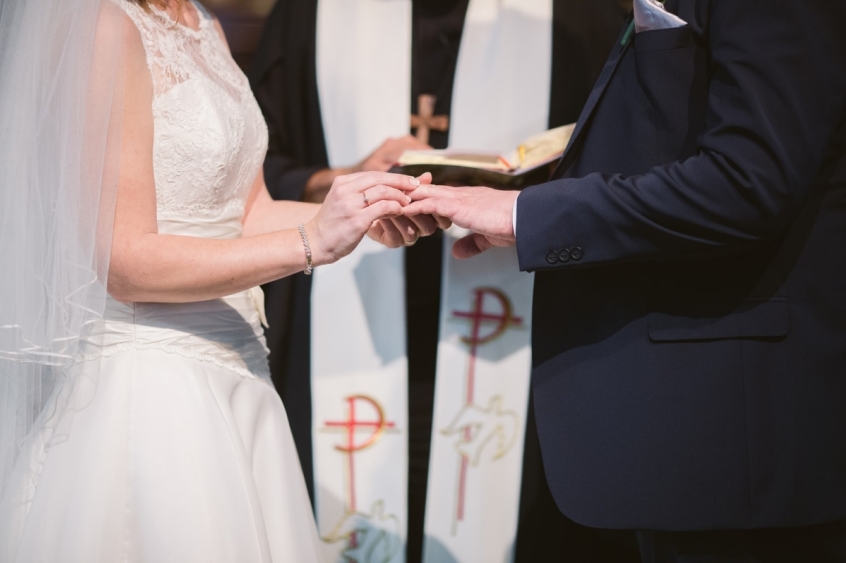
Fewer people are opting to make their relationship official with a traditional church wedding, latest figures from the Office for National Statistics show.
Just 54,000 people chose a church wedding in 2017 - the lowest number on record - marking a steep drop from 184,000 in 1987.
Some 40,000 married in Church of England churches in 2017 and just under 6,000 in Roman Catholic churches.
Religious ceremonies overall accounted for less than a quarter (23%) of marriages between opposite-sex couples in 2017.
The statistics reflect a general drop in the number of people tying the knot, with a total of 242,842 marriages in England and Wales, down 2.8 per cent on the previous year and the lowest since records began in 1862.
Of these marriages, some 6,932 were between same-sex couples.
The figures continue to show a long-term decline in heterosexual couples choosing to wed, with numbers falling by 45% since 1972.
At the same time, couples are holding off before marrying, with men tying the knot at an average age of 38 and women 35.7 among heterosexual couples.
Many are also living together first, with nearly 9 in 10 (88%) of opposite-sex couples cohabiting before getting married in 2017.
Kanak Ghosh of the Office for National Statistics, which produced the figures, said: "Marriage rates for opposite-sex couples are now at the lowest level on record.
"This continues a gradual long-term decline seen since the early 1970s, with numbers falling by a third over the past 40 years.
"The popularity of religious ceremonies also fell to historic lows for the second year running, with fewer than one in four couples choosing to get married through a religious ceremony."













